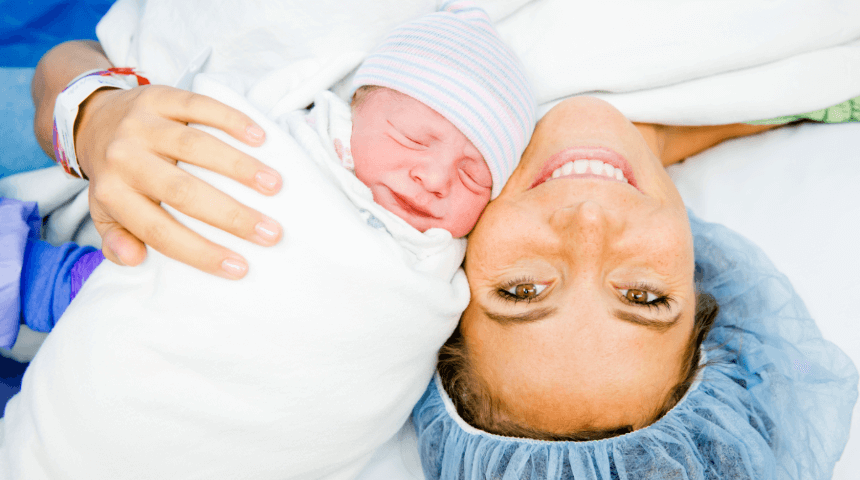You might feel awkward talking with your OB-GYN about sex after childbirth, but it’s normal to have questions. For starters, when is it safe to have intercourse again? And should you worry about pain during sex?
After delivering their baby, most women need to wait at least six weeks before seeing their OB-GYN for a postpartum visit. If you gave birth vaginally, this visit is a chance for your doctor to check that your vagina has healed from any tearing or stress. Extensive tearing may take eight weeks or longer to heal.
What To Expect
Is it time? At your doctor visit, talk about whether you’re cleared physically to start having sex again. Your doctor will likely suggest that you decide the sexual position and speed, and only progress as you feel comfortable. Know that sex does get better with time.
Pain and sex. If you get cleared for sex, be prepared: Most women will experience some discomfort the first time they have sex after the baby is born. However, severe pain is far from normal and is a reason to schedule a follow-up visit to get answers. Other reasons to see your doctor again:
- You’re unable to have sex
- You experience continued bleeding from intercourse
These are things not to ignore, as they will not simply go away with time. In fact, these could be signaling a problem that requires your doctor’s attention. For example, you may have excessive scar tissue that is causing the pain during intercourse.
Changes to your sex drive. You may notice changes to your sex drive. Some women have high sex drives, but it might be much lower after giving birth. This happens for several reasons, including:
- Decreased estrogen levels. Estrogen levels plummet right after a woman has given birth. This hormone largely fuels a woman’s sex drive, so it’s natural that the loss of it corresponds to decreased interest in sex. Many women find that their sex drive stays low until they have finished the breastfeeding stage.
- Loss of sleep due to a new baby keeping them up at night.
- Weight gain from being pregnant can make some women feel self-conscious.
It may take time for you to feel like yourself again. Consider these suggestions:
- Understand that your partner wants to be intimate because he or she loves you. Your partner is likely not expecting your body to be exactly the same shape and size it was before pregnancy.
- Give yourself some grace. You have just taken on a new role, whether this is your first, second or fourth child. It is natural that sex is put on the back burner while you and your partner learn how to navigate your new normal. Remember, too, that this relationship started with two people, not three or more!
- Don’t forget to schedule romance. Go on dates. Make some time on the calendar for something that isn’t all about the new baby.
More Tips for New Moms
Birth control. Yes, even though you just had a baby, you can become pregnant again. It’s also a myth that you can’t get pregnant while breastfeeding — this happens often. It is possible to ovulate before having your first period post-birth. You should have a birth control plan if you don’t want to become pregnant immediately after giving birth. Keep in mind, too, that it takes time for your menstrual cycle to reset and become normal again. Irregular bleeding after pregnancy is both normal and common. Consider, too, that your menstrual cycle may change in flow or timing after childbirth. During this time, it’s hard to gauge your fertility and pregnancy status if relying on your period as a marker — making birth control even more important during this time.
Changes to your body. Be patient with your body and all its changes. Most likely, your body will not bounce back to exactly how it was before you had your child. One thing many new moms don’t expect is vaginal dryness. This is common, especially while a mom is breastfeeding. Breastfeeding puts mom’s body in a hypo-estrogen state — aka a low-estrogen state. Estrogen is the hormone responsible for your vagina’s lubrication, elasticity and thickness, so it makes sense that low levels cause less lubrication. This typically improves with time.
It is natural to find that it takes time before your sex drive returns. However, if this feeling lingers and you also have decreased interest in things you normally enjoy, it might warrant a conversation with your doctor, as it’s possible this is a sign of depression.
Pelvic floor therapy. You, along with most new moms, could benefit from pelvic floor therapy, provided by a dedicated pelvic floor program or therapist. The pelvic floor is made up of a lot of muscles, and housing a baby changes those muscles. Just as someone who has broken a bone or been in a car accident needs physical therapy to rebuild strength in the affected areas, so, too, does your pelvic floor need some help in being restrengthened. Pelvic floor therapy helps pelvic-area muscles regain strength for normal activity, such as sex, and aids in preventing issues such as leaking urine. Likewise, any new moms who experience pain during intercourse may also be referred to a pelvic-floor specialist.




